Quarterback Baby might just be our next big pop star. Fka Quinn Bates, the singer isn’t trying to reinvent the pop wheel: In a sea full of corporate sounds, algorithmic politics and family-friendly images, Bates wants pop to be the raunchy and authentic self it used to be. With their recent release, Hypersexual Heartbreak, Bates navigates the ups and downs of a breakup, and how sex and identity intertwine through that journey.
Bates has never been shy about bringing their personal experiences to the forefront, being vulnerable and… well, real. Inspired by icons like Britney Spears, Peaches and Gwen Stefani, Bates’s aim has always been to be a provocateur.
It’s beyond shock: It’s about making a mark musically. At times, the industry feels like chaos, and in Bates’s words: watered down and not pop in its truest form.
Sitting at a coffee shop, dissecting the music scene in Canada and being a queer artist, Bates spoke with us honestly about what it means to be a pop star in the making.
Read our full Q&A after the jump!
�
Hey Quinn! So, the release just happened a couple of weeks ago, how are you feeling? Spiritually, emotionally, sexually.
I wrote the album two years ago, and I’ve been edging this whole time. With the release, it’s like I finally came. On one hand, I’m so happy that it’s accessible for all the people who have been supporting me. But on the other, it’s like, “Shit, now I’ve got to promote it.”
I love to perform, I love to write, and I love to be in the studio more than anything. All this marketing stuff is not my favorite, but we try and make it funny.
I made the most cringe TikTok the other day, intentionally cringe, and it low-key blew up. A bunch of people commented and said, “What the fuck is this guy doing?” I was pretending to be one of those wolf guys, the ones that say, “Listen to Daddy.” The snake eye filter and crawling… “Listen to my command” kind of thing. At the same time, they’d comment, “Why does this song hit?”
Oh, the edging process! You kind of described it as this build up and there’s this huge theme also of queerness, your own identity and your self-being. Why did you gravitate to that?
It happened organically. I went through a messy breakup after a serious two-and-a-half-year relationship. I got the grant I submitted while I was still dating this person, and once we broke up I thought, “Well, I have all this money, I have to make some art.”
It was me, really depressed in my little bedroom, with my little desk and my little computer. It was just so unhinged. I was listening to so much Pussycat Dolls, Gwen Stefani, and Britney Spears. The most mainstream, Top 40, early 2000s pop music… I was building off of that melodically. In terms of production, there was a lot of Kelela…Rosalia’s album came out during that time, and I loved how heavy her 808s were hitting. I was also listening to so much Feist. So much Feist.
At the time, this random guy asked me on a date to a Peaches show and it changed my life.
Have you ever heard the story behind “Fuck The Pain Away”?
The one where she free-styled it or did it in one take?
It was one take, she performed it at the Rivoli, then recorded it and that’s what you hear on the album!
I love her. She’s such a rockstar. I was never an electric guitar girly, I didn’t care about it. But then, I watched her show and I was like, “I need electric guitar in all my music.” This album has so much of it, all because of that Peaches concert. I just love how sexual she was and how she’s just such a bad bitch.
I resonated so much with her artistry; it’s a theatrical performance. That’s what I love about pop music: It’s so theatrical, it’s a fucking theatre production. But sexy and horny, right? Bad bitch theatre. Pop music is bad bitch theatre.
Hypersexual Heartbreak, the name itself is horny, sad, and gritty. Is there a reason for that name?
I was playing a lot of hyperpop and everything in my writing was super hypersexual, but also all about heartbreak. It just rolled off the tongue.
I was talking to friends asking, “How do you feel about hypersexual heartbreak?” Everyone loved the name. I loved the name.
Everything you’ve done has been done independently, and otherwise with friends as this team pulling everything together. What’s it like being an independent artist in Toronto?
I know my friends and I are all bad bitches that all mainstream bitches are pulling inspiration from. I know that we are the creators of bad bitch art, so that feels cool.
I do have distribution—100 Collectives—that operates through Orchard, and while I’ve been getting help from a label, I’m not signed. As an independent artist, the grant system is your best friend.
Are there any particular tracks that have this strong connection to the breakup itself?
Almost all of them. It starts with “Let Me In,” which I wrote the week before we broke up as this, “You’re so closed off, let me in.” Then we broke up, and two weeks later I’m thinking, “Let me in and fuck me up.” So, F Me Up is very much, “You don’t even know how bad you fucked me up, but at the same time… Fuck me up.” A lot of double entendres. I wrote “Hold” with Myst Milano.
There’s also this theme of checking their story over and over again, how I know how bad it is but I can’t stop creeping them. It’s a “wish you didn’t have a hold on me” vibe. “Hold” was written after I saw my ex at a club.
Everything is chronological from what you experienced during and post-relationship.
Yeah. [There is] another track about how I was messy too: “Oh, I’m fucked up” and oh, I have to let you go. So, I’m just going to fuck a bunch of people. Okay, we’re fucking people, we’re talking to people, we’re fucking people, we’re fucking people.”
Then it’s like, “Okay, I’m sensitive and this is all fucked up.” Then it ends with, “Well, I just fucked the whole city and I’m still really sad. I got to love someone,” and that was nice.
It’s giving opera with a sad ending. It’s giving fall season. When I made the tracks, you feel as though it’s a grieving process.
You write what you know… That’s how it becomes honest and passionate. How has the response to the album been since its release?
Since the “Cheerleader” video came out, it’s been great. I’ve gotten more followers and have been blowing up across different platforms. I think people are turning their heads and want it.
I’m starting to put my foot in the door and people are starting to notice me, and that’s exciting. But, it’s also, “Oh my god, I have to make three more albums” You have to turn yourself into a content machine.
How did the “Cheerleader” video come about?
It was just so random. Dylan Mitro, the director, and I applied for the RBC MVP Project Prism Prize video grant and got it in December. The video came out just before Pride, the turnaround was so fast. We did it all in a month and a half, which was crazy. The production itself was big, with 60-plus people on set. I was having imposter syndrome up the ass.
I remember walking around, and thinking there are so many people here. I made this song sad in my bedroom. Now, it’s here as this big quality production. It was fucking crazy.
From what I’m getting from the release is that there is tenderness in queer identity and it’s so personal and deep to the feelings around it.
My whole concept is that heartbreak fucks with your libido, either it’s crazy high or no libido at all. This is just my experience, but not everyone. It messes with your emotions and how you navigate intimacy.
I was searching for validation, and maybe I still am. That validation in sex. It also could be because, near the end of the relationship, my partner was not as intimate with me. I’d think “What’s wrong with me?” and I’d find myself searching for that within others.
It’s finding a way to blame ourselves for things that might just be about someone else I suppose.
100 per cent. It totally was. It’s so hard not to blame yourself when you are a critical human being or even a queer person. Queer people, we constantly blame ourselves for literally everything because the world blames us. We have to be exceptional at everything. We have to work double time to be respected.
It’s interesting to have music that incorporates intimacy and sex in different ways. Especially in a city that feels sexless. You have intimacy in relationships and then intimacy you seek in people you meet for the first time. Maybe Quarterback Baby will bring sex back to the city.
Oh my god, please. Not just all the straight men making songs about sex in Toronto, they’re all creepy and weird about it. When I was in British Columbia, I was not vibing with many artists. I just have one good friend making pop music out there. Everyone there makes indie rock or indie pop. Nothing resonated with me. I moved to Toronto thinking there would be a great pop scene here, but it’s still pretty trash, no shade.
It’s just a little watered down and pop songs made for Spotify playlists is what it’s giving. It lacks luster. It lacks artistry and excitement. A lot of people in the industry here don’t get what I’m trying to do, which is crazy. I’m pulling inspiration from Doja Cat, SZA, and Lil Nas X, all these artists who are Top 40 in America. It’s not this watered-down, algorithmic pop music that Canada is trying to make.
Canada’s industry doesn’t give a shit about people of color; they don’t give a shit about queer people at all unless you conform to a specific look that’s family-friendly.
So it’s not authentic? Is it not real queerness?
There’s nothing authentic about the queer artists coming out of here. They sound like carbon copies of different artists. You also don’t get respect unless you want to blow up outside of Canada. Only then the Canadian market starts looking at you.
Look at The Weeknd, Jesse Reyes or Daniel Caeser. No one gave a fuck about them until they blew up in the States.
There’s always space for everything; it’s whether or not you want to make space.
Everyone that runs the majority of the industry is straight, white, and their music taste isn’t great. They’re all Swifties.
Do you think people have lost this art of being strange and weird in music? Sometimes it feels like we don’t make pop music that is raunchy, sleazy or gritty as much as we used to. We saw that more so in the ’80s and early 2000s. How do we bring that back?
There’s something fun about being taboo. You have to get to a certain level to do that which I find crazy. Look at Lil Nas X: He couldn’t be a horny gay man until he blew up.
And that’s what people want, but still, the industry won’t let artists explore until their following is big. It’s like, think outside the box for once.
We also have these big artists taking from the scene. That’s been going on for a while.
Look at Rihanna: She’s a curator. With Unapologetic, the whole aesthetic was taken from NYC’s GHE20G0TH1K, my friend Myst was telling me.
These artists are praised for having crazy art, but it’s because they’re smart, they go to clubs and go into the art scene and find what’s cool and hip.
Will we ever have this strong pop revival?
I hope so more than anything. I see Charli XCX blowing up right now to the mainstream girls, and Charli’s been big for all pop girlies forever. It’s cool that hyperpop is in the mainstream now. Everyone’s trying to do it—look at Camila Cabello—it’s not authentic. It’s these mainstream people taking ideas from the true bad bitches and the people who are making good-ass music.
—Q&A by Rhea Singh (@cnt____mag)

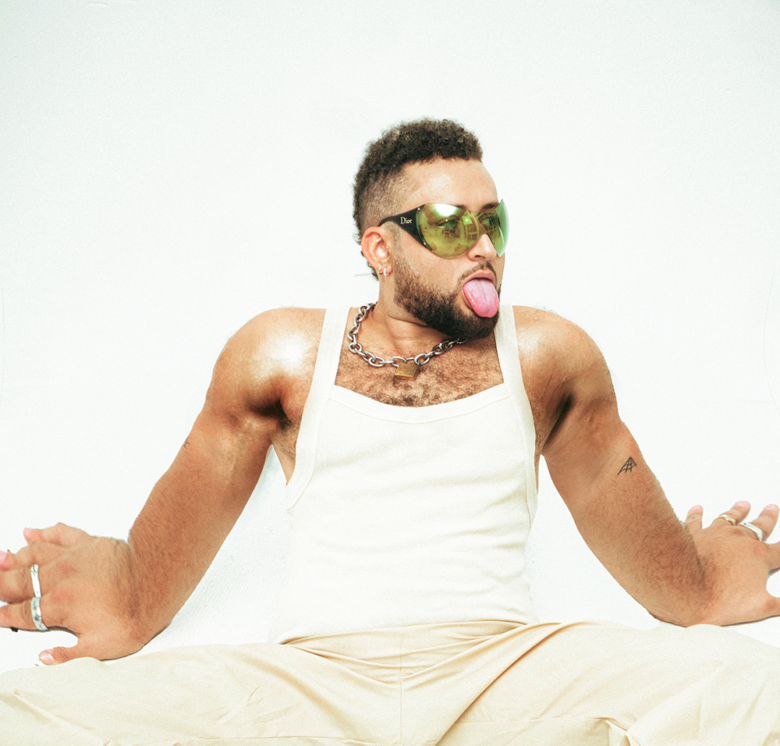
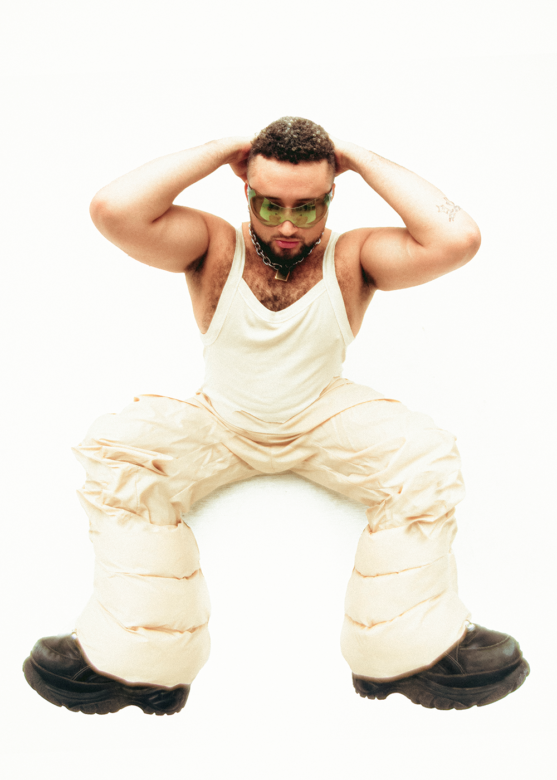
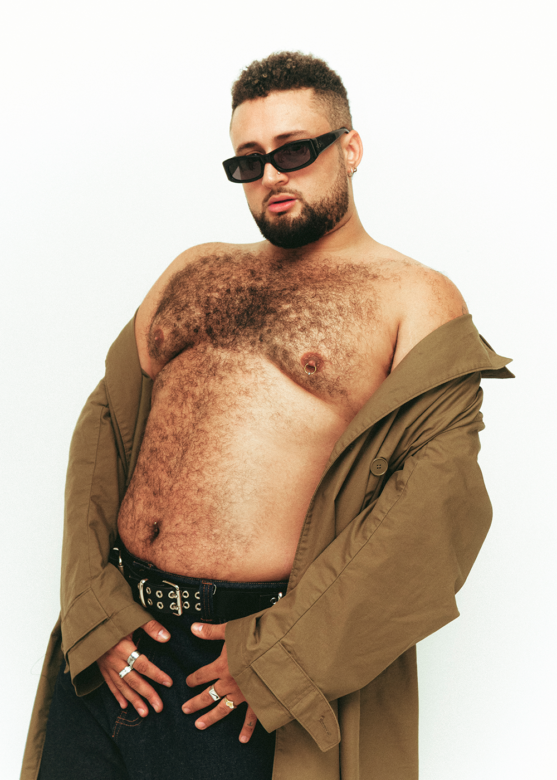
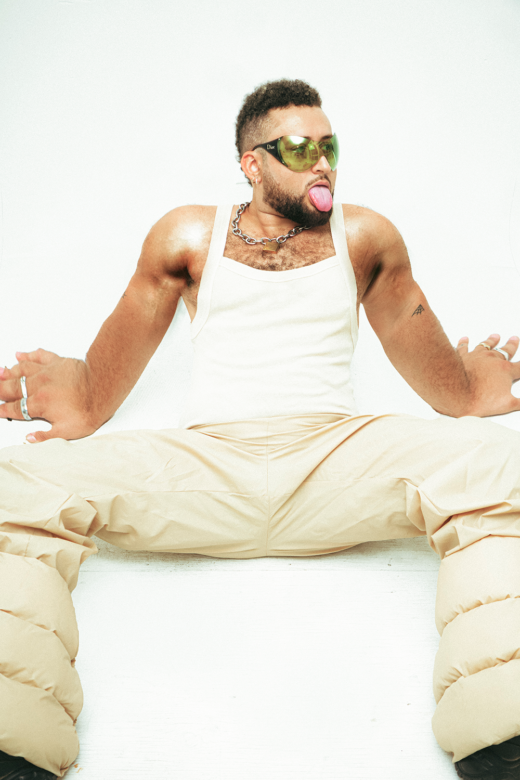
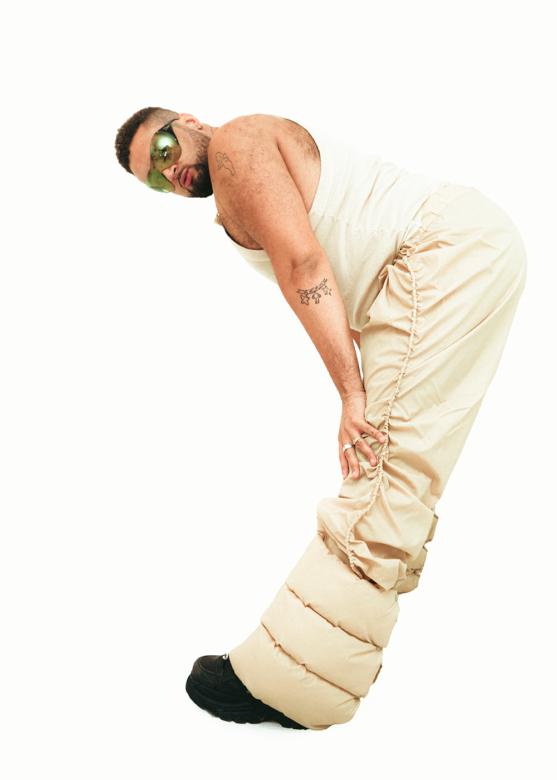
Be the first to comment on "OMG, a Q&A with Quarterback Baby"